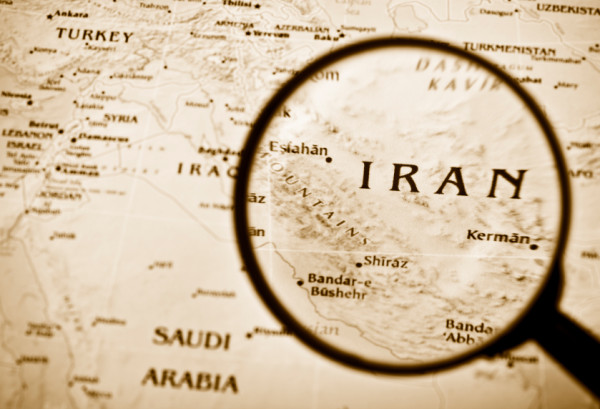by Shireen T. Hunter
Throughout the recent handwringing about how the US and other Western countries failed to foresee the emergence of ISIS, one factor has been totally ignored, either intentionally or inadvertently: the impact of Washington’s hostility towards Iran, especially its persistent tendency to treat any anti-Iranian movement or idea in the Middle East as either good or the lesser evil compared to dealing with Tehran. This attitude has been coupled with a consistent unwillingness to support positive forces for change and reform in Iran; indeed, actually undermining them by insisting on their meeting preconditions that the West knows can’t be met due to Iran’s internal political dynamics. Significantly, this Western and especially American attitude predated any dispute over Iran’s nuclear program.
The first Western mistake followed the end of the Iran-Iraq war, the death of Ayatollah Ruhollah Khomeini, and the coming to power of Ayatollah Akbar Hashemi Rafsanjani in 1989. Instead of taking advantage of Iran’s vulnerability at the time, as well as Rafsanjani’s efforts both to move Iran towards moderation and openness domestically and internationally and to reach out to the West to help him achieve these goals, the United States chose to put all of its eggs into Saddam Hussein’s basket and adamantly refused to acknowledge his many transgressions—against Iraq’s neighbors and own people—until his fateful 1990 invasion of Kuwait.
Nevertheless, with great difficulty—due to leftist opposition—Rafsanjani managed to secure Iran’s neutrality in the Persian Gulf War, a fact that facilitated US military operations. He also secured the release of the last of the Western hostages held in Lebanon. Yet, instead of encouraging the moderate political trends in Iran, the US under President George H. W. Bush embarked on a policy of containing Iran (soon to be replaced by the Clinton administration’s “dual containment” policy, which was then followed in 1996 by Congress’ enactment of the first oil sanctions against Iran at a time when Rafsanjani was actively encouraging American oil companies, notably Conoco, to invest). This policy of containment was first announced during a trip to Central Asia in 1992 by then-Secretary of State James Baker who declared containing Iran’s influence in the region would constitute a major goal of US policy.
Guided by this objective, the US subsequently bought into Pakistan’s argument that the Taliban would constitute a credible barrier to Iran’s influence in Afghanistan and, through it, in Central Asia as well. Hence Washington did not object to Pakistan’s arming and promoting the Taliban, a step that eventually led to the fall of the Afghan government of Burhaneddin Rabbani and Ahmad Shah Masood, two leaders who supported a version of Islam far more moderate than that of the Taliban. It is forgotten today that the Afghan civil war began with attacks by the Pakistan-based and more radical Islamists, first through Gulbuddin Hekmatyar, and, when Islamabad judged him to be too difficult to control, through the Taliban.
Even after the 1998 al-Qaeda bombings of US embassies in Nairobi and Dar es Salaam, followed by the 9/11 attacks and the US invasion of Afghanistan, which Iran directly and actively supported, Washington continued to rely on Pakistan as its key regional partner. Despite massive US aid, Islamabad actively—if covertly—undermined US strategy in Afghanistan while it scorned Iran’s offers to help stabilize the country.
Just as Washington ignored or rebuffed Rafsanjani’s efforts to moderate Iran’s domestic and international policies, it similarly declined to help his successor, President Mohammad Khatami, who promoted a tolerant and reformist Islam and a less confrontational approach to relations with the West and Iran’s neighbors. Thus, holding out for the best—namely, a secular, pro-western government in Tehran—the US lost the relatively good. And when Iran actively helped the US both to oust the Taliban and facilitate the transition that followed, it was rewarded by President George W. Bush with membership in the “axis of evil,” paving the way for new and ever more punitive sanctions.
After the 2003 US invasion of Iraq, Tehran quietly put forward an offer for a comprehensive deal with the US not only to cooperate on efforts to stabilize Washington’s latest conquest, but also to address all outstanding issues between the two countries, from acceptance of Israel and Iran’s support for Hezbollah and Palestinian resistance groups to Iran’s nuclear program. The Bush administration did not even bother to respond. Moreover, fearful that Iran might become the unintended beneficiary of the Ba’ath regime’s removal, Washington essentially stood by as its regional Sunni allies worked to undermine the fledgling Shia-led government in Baghdad not only by denying it aid and formal diplomatic recognition, but also, in the case of some Gulf states, encouraging and supporting the burgeoning Sunni insurgency, including al-Qaeda in Iraq (AQI), which did not hesitate to attack US personnel, as well as their Shia brethren. Ironically if predictably, Washington’s policy of ignoring Sunni extremists forced Iraq’s Shia government to move closer to Iran.
Of course, the unanticipated insurgency and the increasing sectarian violence that it fostered also derailed hopes by the Bush administration—especially its neoconservative faction—that its “success” in Iraq would lead to “regime change”—either through destabilization or an actual attack—as well. At the same time, however, the administration bought into the idea that the increasingly sectarian nature of the conflict could also be used to curb Iran’s influence, notably by forging a de facto alliance between Israel and the Sunni-led states against Tehran and what Jordan’s King Abdullah ominously called the “Shia Crescent.” Of course, not only did Washington’s acceptance and even promotion of this idea contribute to rising sectarian tensions and extremism throughout the region, but it also failed to produce any progress toward resolving the Israeli-Palestinian conflict. Once again, rather than working with Iran to stabilize Iraq, which would have required exerting real pressure on its Sunni allies that were supporting the insurgency, containing Iran’s influence remained Washington’s overriding priority.
It was in this context that the so-called Arab Spring blossomed and, with it, renewed hopes in Washington to reshape the Middle East, if not by achieving “regime change” in Iran, then at least by weakening its regional influence, particularly in the Levant. Even as the Obama administration publicly depicted the movement as the dawn of open and democratic societies, its closest regional partners—to which Washington had so often and so counter-productively deferred in Iraq—saw it as a way to redress the region’s strategic balance that had been upset by the 2003 invasion and the empowerment of Iraq’s Shia majority.
As the movement progressed from Tunisia and Egypt to Libya and the (thwarted) pro-democracy movement in Bahrain, it eventually reached Syria and the minority Alawite regime of President Bashar al-Assad, Iran’s most important regional ally. While the Gulf states and Turkey led the charge against the regime, the US and much of the West were not far behind. Predictably, however, in its desire to see Assad overthrown and Iran weakened, the US and its allies largely ignored the steadily growing influence of groups such as al-Qaeda’s Syrian affiliate, Jabhat al-Nusra, and similar foreign-backed Sunni extremist groups whose violence toward Syrian Shias, Alawites, Alevis, and Christians has been exceeded only by AQI’s successor, the Islamic State (ISIS).
Thus, for the past 25 years or more, the West—especially the United States—has made containing Iran its overriding priority in the Gulf and has too often seen the Wahhabi/Salafi version of Islam and its violent offshoots as an effective counterweight to Iranian influence. In doing so, it has unintentionally helped create monsters like Saddam Hussein, Osama Bin Laden, Mullah Omar, and now Abu-Bakr al-Baghdadi.
This critique by no means absolves Iran, Syria, Shia militias, or Iraq’s Shia-led government of their own mistakes and crimes. They have their own not insignificant share of responsibility in creating the region’s current problems and conflicts. And they have to do their part if the region’s problems are to be resolved. But as great powers that claim the world’s moral and political leadership with the power to intervene at will in other countries, the US and other Western countries must be judged by higher standards.At the very least, they need to offer a coherent and positive vision of a functioning Middle East and South Asia.
This requires going beyond the platitudes about wanting to advance democracy and human rights.
While the Western powers do not have a clear vision of what kind of Middle East they want and even less how to achieve it, ISIS, al-Qaeda, and al-Nusra have their own regional plans, based on ethnic and sectarian cleansing as we have already seen in both Syria and Iraq.
In short, until the US and the West admit at least to themselves that they have made mistakes in the region in the last few decades, particularly in their efforts to isolate and weaken Iran, and learn from those mistakes and change course, their efforts at defeating extremism and stabilizing the region are bound to fail.
The West cannot get all that it desires in the region, because political engineering has its limits. But if it embarks on a strategy of conflict resolution—fostering regional cooperation, instead of fighting it; and promoting compromise instead of complete capitulation by Iran or any other local power—its interests and those of the region will be better served. Until such a strategy is adopted and seriously implemented, however, every day that passes will make it that much harder to end the violence in the Middle East and encourage compromise and reconciliation. The same is equally true for the regional players. By pursuing maximalist goals they will all end up losers.






There is a kind of malignant stupidity within the foreign policy apparatus of Washington which baffles and amazes with the profundity of its power. As Ms. Hunter has so astutely chronicled here, at every fork in the road this country has made a wrong decision that has directly undermined its own goals. It doesn’t even start with where this article’s timeline begins. It goes way before that. From the CIA/BP coup in the 50s that destroyed the secular nationalists of Iran (as in so many other places in the 50s) and gave rise to the same Mullahcracy that eventually took over and rule today, to siding with murderous runs of Saddam, Talibans, ISIS, it’s all part of the same wrong-headed policy of promoting sectarian war and mayhem. That malignant stupidity has become a sort of currency within the establishment. It is promoted not only by the rabid right wingers, by Evangelical demagogues, and certainly by the defense contractors, but also by the compliant leftists in the back pockets of the AIPAC and Saudi lobbyists, although it’s not limited to those, there are other promoters of this mindless hate which we can partially blame on the self-serving Mullahs of Iran as well. It is best verbalized by Netanyahu whenever he comes to Washington and recites his sermons to the adoring members of his fan club (Congress), preaching doom and gloom as well as utter disappointment that whatever self-defeating policies Washington D.C. has employed against the Mullahcracy of Iran has not been enough. Sadly, they all believe their own sermons, and so this unbelievable, 60+ year long string of actions that lead to one blowback after another continues.
Prof. Hunter’s views are well informed and analysed. But I’d add the policies followed by both countries had been based on age old events that created mistrust and deep suspicions by both countries. This has inevitably led to a situation that through successions of moderates and hardliners in government there cannot be a resolution to satisfies them both. From the point of view of American administration their experiences dealing with Iran make it very difficult to trust Iran’s cleric rulers and their agendas in the region. This had been further aggravated by Iran’s students taking American hostages under Khomaini’s regime who was originally helped to oust the Shah by American’s support. On the Iranian side American government is doing all in its power to weaken the rule of the clerics, and worse still America’s unequivocal support for Israel that ultimately induces rigid and non-flexible policy towards Iran. The hostility shown by Iranian governments towards Israel make reconciliation very difficult for any American administration. I have to agree with comments made by various people that in general the western policies towards developing countries in general and the Middle East in particular is so misinformed that can be defined as naive despite the fact that the major powers boast the presence of so called highly authoritative think-tanks that provide advise to those that will ultimately make the fateful decisions.
Mr. Fahti makes several good points.
However, before everyone jumps on the “let’s bash the U.S.” bandwagon, Let’s kind of go back to the last century’s history in the region and put this in context, starting with the Ottoman Empire, followed by Sykes-Picot divving up spheres of influence, followed by substantial support of Hitler by the Arabs followed by Soviet expansionism / cold war, countered by Kennan’s containment policy — which, necessarily involved Iran and provides a considerable backdrop to where we are today..
As Dr. Hunter correctly points out, considerable mistakes have been made by both sides. The question now, of course, is how are things put back on a productive path.
Insofar as the Iran-Israeli issue. The unanswered question is just how serious are the Mullahs in their stated objective of obliterating Israel? Further, if you’re the Israeli Prime Minister (forget whether Netanyahu or anyone else), to what degree can you afford to trust that the Mullah’s only represent bombast for internal consumption (with their forthcoming nuclear capability) rather than a true existential threat? What if even a peacenik PM guess wrong and the Mullahs really are serious. What can any of the posters or the U.S. or the west provide to Israel then? What about the Palestinians residing within Israel and the territories — what do they gain if the Mullah’s are serious with their threats?
Personally, I think that RonMac hit the nail on the head!
Most of your comments are valid and we should not start bashing any sides for the past misdeeds now. But the last comment regarding the threat posed by Iran is a bit off the mark. Even if Iran manages to develop nuclear arm they would not possibly use it against a foe holding twice or three times as many nuclear weapons and not counting the punishment they will receive in kind from the US unless the mullahs decide to collectively commit suicide. I strongly believe that what is holding back any progress in negotiations between Iran & 5+1, to be Iran’s arsenal of long range ballistic missile capabilities. Particularly because in case of rising tensions these could be passed on to any number of groups hostile to Israel that over the years formed and surround it thanks to the harsh and unjust policies followed by successive governments of Israel.
We should address the more serious threat of the Islamist terrorists that is not only affecting the region but international community. This human tragedy can and should be resolved by stopping those states and groups who are financing them and providing them with weapons before it reaches a global catastrophe level. Unfortunately, I adhere to the conspiracy theory that at the moment there is no will by various sides and the alliances to stop this malady. May be the fall in price of oil could bring some relief?
While often distorted by the Western media, Iran has been clear about Israel. This country called Israel, the only country in the world that does have defined and internationally recognized borders, should be merged with the rest of Palestine in a larger country called for example ‘Palesreael’ where Jews and Arabs would co-exist. Then the entities called Israel or Palestinian Occupied land should disappear ( “wiped out from the map”). In other terms Iran has always preferred a one state solution to a two states solution.
Yet it has declared several times that it is for the Palestinians to decide what is best for them.
Therefore Iran has consistently worked in this direction always countering Israel’s attempts to present itself as the sole powerful decision maker in the region. For that they support Hezbollah on the Lebanese side and Hamas in Gaza.
Israel, strong of the USA support, is not willing to enter in any negotiations about the two states or one states solution. Israel wants to expand its border and when it had expanded enough, it wants to call for their recognition by the international community.
Thanks to country like Iran, it has not been able to achieve this goal.
Until Israel is made to abandon their hegemonic ambitions, the state of war in the region will continue.